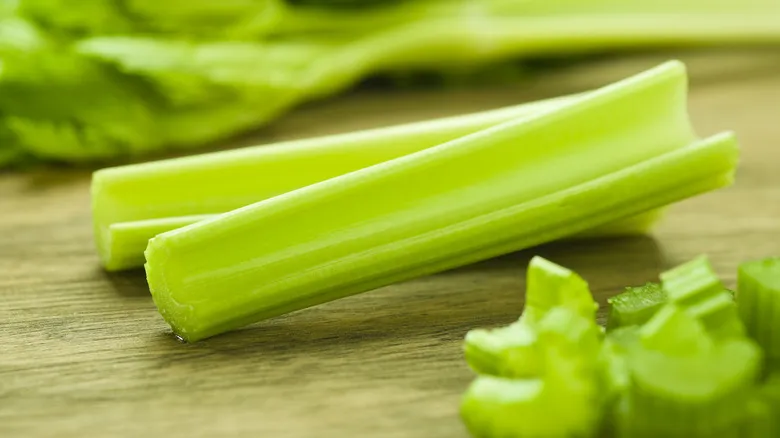Celery, and other fibrous foods, can cause clogs
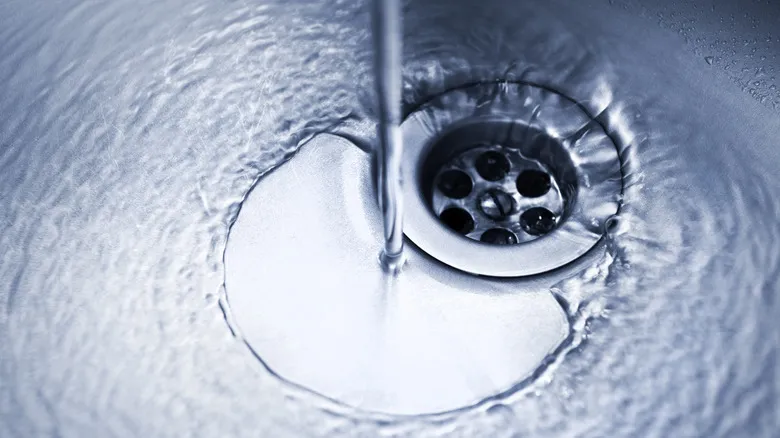
The mass of crushed celery strands can lead to a blockage in your sink. As the blockage lingers, it gathers grease, dirt, and other food debris. As the food decomposes, it releases an unpleasant smell from your drain until you manage to clear the clog, either through some hard work or by hiring a plumber. Other fibrous foods can cause similar issues, so items like banana peels, corn husks, and asparagus should be kept out of the garbage disposal. While tossing a few small pieces of celery down your drain won't immediately ruin your appliance, it's best to do so as infrequently as possible.
In addition to celery and other stringy foods, there are various vegetable scraps that should not be disposed of in the garbage disposal. Onion skins can become tangled in the disposal, potentially causing it to malfunction, or they may bypass the disposal altogether and get stuck in the sink's drain. Likewise, thin potato peels might evade the spinning blades of the garbage disposal and become lodged in the pipe, leading to a blockage. If they are ground up by the disposal, they can create a sticky paste that clogs the drain.
What to do with excess celery
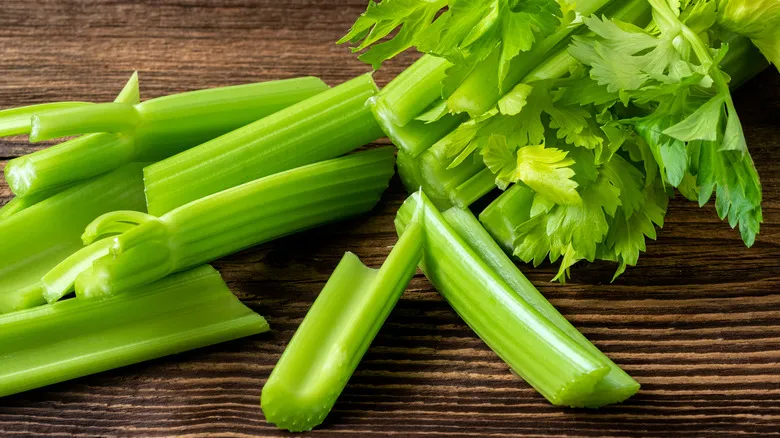
If you find yourself with an abundance of celery, discarding it in the garbage disposal can be a significant error. Fortunately, there are numerous alternative ways to utilize your surplus vegetables. You can preserve chopped celery in the freezer for up to six months by blanching and draining it beforehand. Celery is an excellent addition for enhancing stocks or soups, and you can also sauté it in butter with other aromatics to create a flavorful foundation for various dishes. If your celery has truly seen better days, you can always add it to the compost pile to transform it into nutrient-rich plant food. Just be sure to rinse off any dressing or oil beforehand to prevent attracting pests into your home.
While garbage disposals are powerful devices, their internal components are quite delicate and require proper use to avoid expensive repairs. Celery and other fibrous vegetables can cause significant harm to your appliance, so exercise caution when disposing of them to keep your sink functioning smoothly.
Recommended
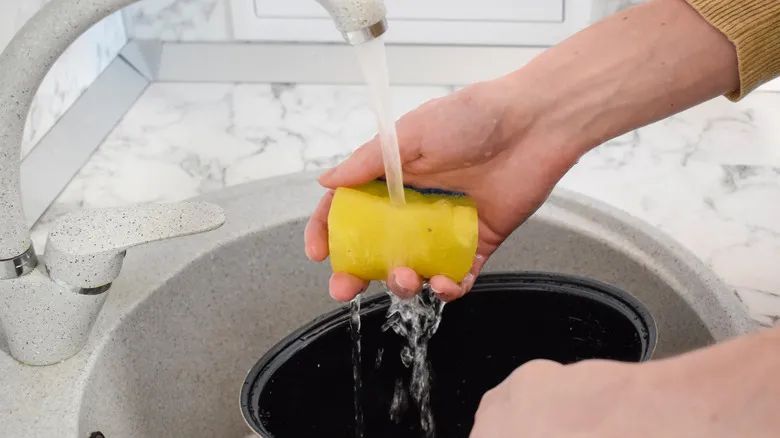
The Best Way To Clean Your Crusty Crock Pot So It Looks Brand New
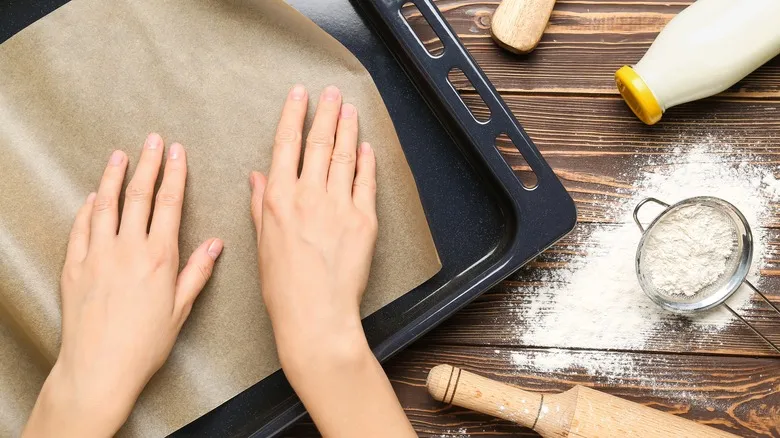
What Is The Difference Between Parchment Paper And Wax Paper?
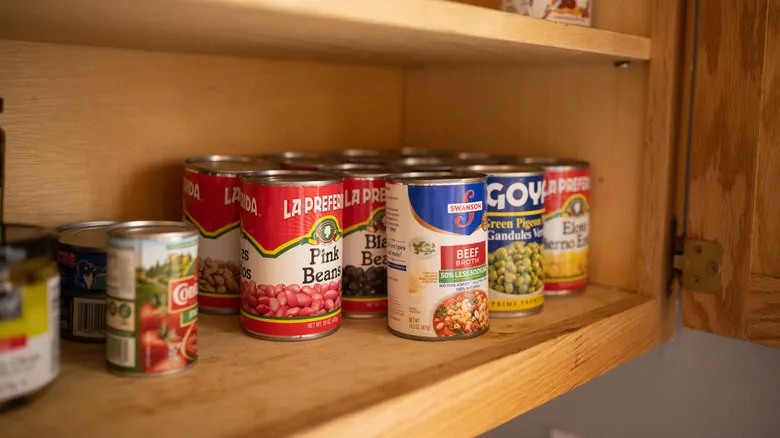
7 Must-Have Canned Foods And 7 To Avoid In Your Pantry
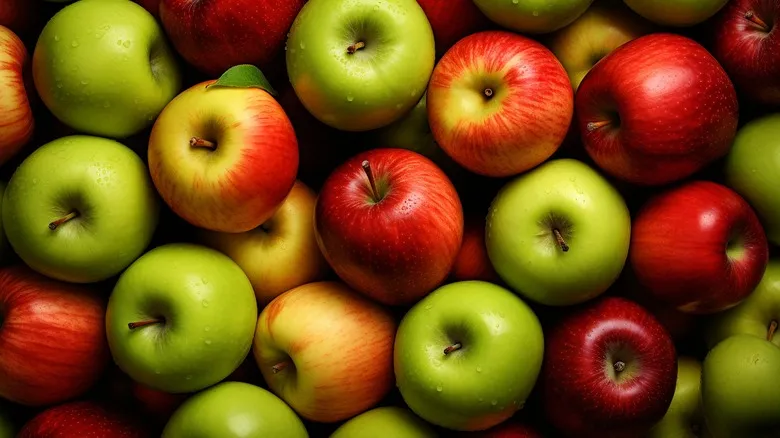
The Best Way To Store Apples So They Stay Crisp
Next up

